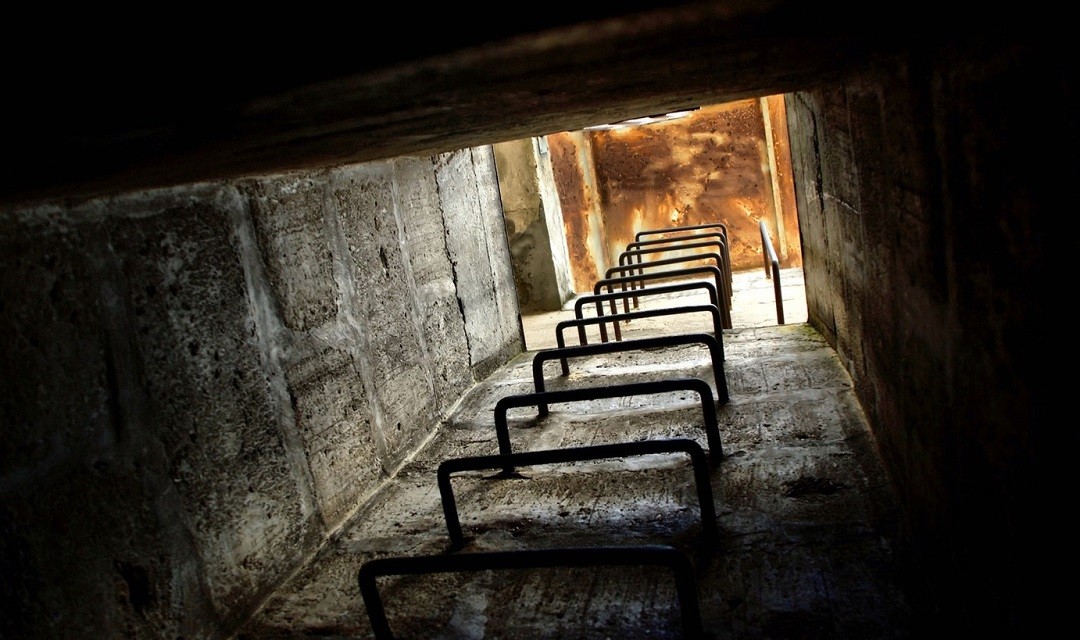This article first appeared in the CHRISTIAN RESEARCH JOURNAL, volume 36, number 04 (2013). The full text of this article in PDF format can be obtained by clicking here. For further information or to subscribe to the CHRISTIAN RESEARCH JOURNAL go to: http://www.equip.org/christian-research-journal/
In anticipation of the coming reckoning, the world waited anxiously for doomsday, but as the year changed over from AD 999 to 1000, nothing significant happened. A thousand years later, panic spread yet again as the year 2000 loomed. Many warned that the “millennium bug” or Y2K would result in global chaos, but nothing significant happened.1 More recently, concerns spread regarding the ancient Mayan calendar, which allegedly pinpointed the cataclysmic end of the world on December 21, 2012. But nothing significant happened.
Despite the abysmally poor track record of doomsday prophets, pockets of individuals continue to prepare for the worst. A growing movement emphasizing survival and preparedness in the face of anticipated widespread catastrophe has begun to garner mainstream attention. In 2012 National Geographic launched a television series called Doomsday Preppers, which, as the title suggests, is about people readying themselves and their families for various doomsday scenarios. That same year, the Discovery Channel began its own series called Doomsday Bunkers, focusing on survival shelters built to withstand the end of the world. Many other sources of prepping exist, such as Living Ready—a website and print magazine “that helps you be prepared to survive and thrive, no matter the situation.”2
Why focus on doomsday preppers? With the rise of attention on the movement, adherents and their advice are no longer on the fringes of society. Indeed, they are now within the living rooms of millions of television viewers. Responses no doubt include mockery and a desire to escape into amusing entertainment, but there are more serious implications. What about those who take prepping seriously? How should Christians respond? Are there theological ramifications?
PREPPING IS NOT NEW
Preparing for doomsday is not new. Following the rise of devastatingly powerful atomic bombs in the post–World War II era, for example, fears of nuclear Armageddon loomed large as the superpowers of the day—the United States and the Soviet Union—embarked on an all-out nuclear arms race aptly termed MAD (“Mutually Assured Destruction”). Some Americans responded to the communist nuclear threat by building bomb shelters and stockpiling them with food and firearms.
Some cults and new religions, too, were prepared for catastrophe. Two examples include the Church Universal and Triumphant (CUT) and the Church of Jesus Christ of Latter- day Saints. The former, led by the late Elizabeth Claire Prophet, emphasized occult contact with “ascended masters” who warned of a coming apocalypse. In response, the CUT faithful stockpiled supplies, including weapons, in bunkers in Montana. Most Mormons are also called to be, in a sense, preppers, as they are admonished to keep on hand a supply of food and water “so that, should adversity come, we may care for ourselves and our neighbors.”3 Consequently, even the official LDS website includes information about food storage.4
WHAT IS A PREPPER?
What, exactly, is a “prepper”? The word obviously is derived from preparation and its variations such as preparedness and prepare. Preppers, then, are ready or are in the process of making themselves ready (preparing). Typically preppers are readying themselves for severe times, whether they are the result of a natural disaster or human-induced strife. The more extreme preppers (who tend to garner media attention), for instance, are often preparing for catastrophes of world- changing proportions. This may include tremendous disasters such as the eruption of a super volcano, a catastrophe-causing shift in the earth’s magnetic poles, electromagnetic pulses (EMPs) that will disable all electronics, widespread economic collapse and subsequent civil unrest, a devastating earthquake, and more.
But preppers need not all fit within the “extreme” camp. Some are moved by recent events such as Hurricane Sandy or the real possibility of natural disasters where they live such as tornadoes, blizzards, flooding, or even concerns regarding domestic terrorism. Not all preppers, then, are readying for doomsday per se, but they are nevertheless preppers in the sense that they are actively preparing to survive some kind of disaster. Preparations usually involve, at minimum, storing food and water, supplies, and, in some cases, having firearms and ammunition on hand or access to a second secure location. In extreme cases preppers may pour significant dollar amounts into their preparations.
PRUDENT PREPPING
A modicum of preparation is, frankly, prudent. The city of Los Angeles recently urged citizens to have enough supplies on hand to survive for two weeks in the event of a severe disaster such as a massive earthquake,5 while the Federal Emergency Management Agency (FEMA) also provides recommendations on preparedness.6 Imagine being without electrical power, access to a regular water supply, or being cut off from grocery stores. Such scenarios do occur, especially in areas prone to powerful storms and other natural disasters. Doomsday preppers, however, take matters further, often anticipating far more escalated levels of disaster requiring more extensive preparations.
While space doesn’t allow an exploration and assessment of every popular doomsday scenario envisioned by such preppers, most of the situations are highly unlikely. This is not to say that they are all impossible, but given what we know about disasters, far more likely situations involve such things as natural disasters that may, for a time, cut people off from ordinary sources of food, water, and medical assistance.
Prepper literature presents a dizzying variety of viewpoints, from the extremist to the more sensible. In The Disaster Preparedness Handbook, Arthur Bradley provides some common sense advice: “My motto is ‘prepare for what makes sense.’ It is highly unlikely the world will end tomorrow. Even if it does, it is equally unlikely that anything you do today will ensure your survival through the cataclysm. Better to be prepared for the challenges you might actually face—harsh weather, power outages, loss of income, being stranded on the road, and so on.”7 With that in mind, Bradley, nevertheless, cautions that “the world is not as safe as we would like to believe. It is a chaotic system with limitless inputs and outcomes. Anything can happen.”8
PREPPING AND GOD’S PROVIDENCE
Theologically, Christians are not called to fear, but to boldness. When it comes to questions of disaster, even on the level of doomsday events, we are to rely on God’s providential guiding of history, secure in the knowledge that His sovereign, omniscient, and omnipotent power is guiding events purposefully and meaningfully. In this sense we do not live in a “chaotic system,” though it may seem so to us at times, since we do not have access to the big picture. It is God, however, who sustains us on a moment-by-moment basis. Every one of us is dependent on Him for every moment of life. God does not call us to panic, but neither does he call us to be oblivious and completely unprepared. We must, though, avoid obsessing over preparedness, being motivated by fear, or even placing an unhealthy emphasis on survival in this world when, in reality, this world is not our home and we are exhorted to “keep seeking the things above, where Christ is, seated at the right hand of God. Set your mind on the things above, not on the things that are on earth. For you have died and your life is hidden with Christ in God” (Col. 3:3–4).
Nevertheless, Christian communities continue to see the rise of doomsday prophets. A thorough evaluation of the various end-times eschatologies found within Christianity is beyond the scope of this article, yet we must remain diligent when it comes to interpreting the Bible when it comes to questions about the end times. To paraphrase what Walter Martin once said in response to questions about different Christian views of the end times, “We have a great enough God to take us up or to take us through.”
HOW SHOULD WE RESPOND?
C. S. Lewis offered some helpful insights and advice regarding the inevitable end of the world:
The curtain may be rung down at any moment: say, before you have finished reading this paragraph. This seems to some people intolerably frustrating. So many things would be interrupted. Perhaps you were going to get married next month, perhaps you were going to get a raise next week; you may be on the verge of a great scientific discovery; you may be maturing great social and political reforms. Surely no good and wise God would be so very unreasonable as to cut all this short? Not now, of all moments! But we think thus because we keep on assuming that we know the play. We do not know the play. We do not even know whether we are in Act I or Act V…. We are led to expect that the Author will have something to say to each of us on the part that each of us has played. The playing it well is what matters infinitely.9
In other words, regardless of when the end comes, we are to live our lives soberly, doing the best we can for the glory of God and the furtherance of His kingdom, “labouring in their vocations, whether they were merely going out to feed the pigs or laying good plans to deliver humanity a hundred years hence from some great evil.”10
Practice Peace after Preparing
In his essay, “On Living in an Atomic Age,” Lewis offers additional insights, this time focusing on the fears of atomic devastation felt in his own day:
It is perfectly ridiculous to go about whimpering and drawing long faces because the scientists have added one more chance of painful and premature death to a world which already bristled with such chances and in which death itself was not a chance at all, but a certainty…the first action to be taken is to pull ourselves together. If we are all going to be destroyed by an atomic bomb, let that bomb when it comes find us doing sensible and human things—praying, working, teaching, reading, listening to music, bathing the children, playing tennis, chatting to our friends over a pint and a game of darts—not huddled like frightened sheep and thinking about bombs. They may break our bodies (a microbe can do that) but they need not dominate our minds.11
Several practical insights are found in this latter piece of advice. First, death is a certainty. This does not mean we should seek death or avoid prolonging life, such as when facing a severe illness or even an impending disaster. But we must come to terms with the reality of death. No matter what the lengths of prepping we may take are, one day we will pass from this life. Second, Lewis calls us to “pull ourselves together.” In other words, don’t panic. We need not run around like the proverbial Chicken Little, frantically concerned that the sky is falling. The sovereign God of the universe is providentially guiding history to an ultimate culmination. In short, we are in good hands. Third, regardless of our personal circumstances or the greater circumstances of a world in turmoil, we are to live our lives as God has called us to live them. This perspective should move us to live sensibly, using our gifts and talents in this world. We must move from being spectators and mere consumers to the realization that we are called to contribute and create. Finally, God has not called us to cower in fear before the challenges of this world or to allow situations beyond our control to “dominate our minds.” As 2 Timothy 1:7 reads, “God gave us a spirit not of fear but of power and love and self-control” (ESV).
As Bradley cogently writes, “People who neglect important areas of their life in order to focus on uncertain doom are losing sight of what’s important—not to mention failing to see life’s daily joys.”12 Fixating on catastrophe is not the attitude God has in mind for us. Rather, we are to have hope and joy, knowing that all things are in God’s hands. “Be sober-minded; be watchful,” says the apostle Peter (1 Pet. 5:8 ESV), with other translations rendering the opening phrase as being “self-controlled” (NIV) and “of sober spirit” (NASB). Spiritual vigilance is of great value, but preoccupation with preparing for doomsday is not.
Robert Velarde is author of A Visual Defense (Kregel Publications), Conversations with C. S. Lewis (InterVarsity Press), The Wisdom of Pixar (InterVarsity Press), The Heart of Narnia (NavPress), and more. He received his M.A. from Southern Evangelical Seminary.
NOTES
- Christians were not immune to dire predictions about Y2K, which spawned something of a cottage industry in Christian publishing and included bestselling books such as The Millennium Bug: How to Survive the Coming Chaos by Michael Hyatt (Washington, D.C.: Regnery Publishing, 1998).
- “About Us,” available at http://www.livingreadyonline.com/about-us/.
- “Food Storage,” available at https://www.lds.org/topics/food-storage.
- Ibid.
- CBS News, “Residents Urged to Prep for ‘Two Weeks on Your Own’ on Quake Anny,” available at http://losangeles.cbslocal.com/2013/03/11/residents-urged-to-prep-for-two-weeks-on-your-own-on-quake-anny/.
- See “Plan, Prepare and Mitigate,” available at http://www.fema.gov/plan-prepare-mitigate.
- Arthur T. Bradley, The Disaster Preparedness Handbook, 2nd ed. (New York: Skyhorse Publishing, 2011), introduction, electronic edition. Note that quoting Bradley does not imply a blanket endorsement of this or his other works.
- Ibid.
- C. S. Lewis, “The World’s Last Night,” in The World’s Last Night and Other Essays (New York: Harcourt Brace Jovanovich, 1960), 105–6.
- Ibid., 111.
- C. S. Lewis, “On Living in an Atomic Age,” in Present Concerns (New York: Harcourt, 1986), 73–74.
- Bradley, The Disaster Preparedness Handbook, Introduction, electronic edition.









